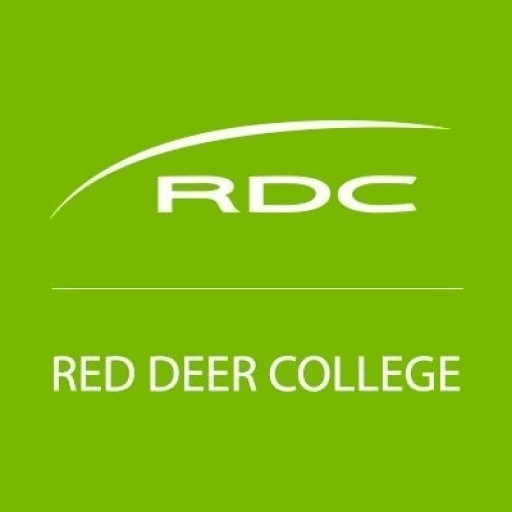Photos of university / #reddeercollege
The Engineering program at Red Deer College offers students a comprehensive foundation in the principles and practices of various engineering disciplines. Designed to prepare graduates for immediate entry into the workforce or for transfer to bachelor's degree programs, this program emphasizes hands-on learning, critical thinking, and problem-solving skills. Students will explore core areas such as mechanical, civil, electrical, and industrial engineering through a combination of classroom instruction, laboratory work, and real-world applications. The curriculum is structured to develop technical competencies alongside professional skills, including teamwork, communication, and project management. Throughout the program, students have access to state-of-the-art facilities and industry partnerships that enhance practical experience and employability. The program also emphasizes sustainability, innovation, and ethics in engineering design and decision-making processes, ensuring that graduates are prepared to contribute responsibly to technological advancement and community development. With a focus on experiential learning, students participate in projects, internships, and cooperative education opportunities that provide valuable industry exposure. Upon completion, graduates are equipped with a solid technical background, ready to pursue further education in engineering or to begin diverse careers across multiple sectors, including manufacturing, construction, energy, and technology. Red Deer College's Engineering program is committed to fostering a dynamic learning environment that nurtures curiosity, creativity, and lifelong learning, empowering students to become innovative engineers dedicated to making a positive impact in society.
The Engineering program at Red Deer College offers a comprehensive and innovative curriculum designed to prepare students for a successful career in the field of engineering. This program provides a solid foundation in the core principles of engineering, including mathematics, physics, and computer-aided design, complemented by practical hands-on training and real-world applications. Students will have the opportunity to engage in both theoretical learning and laboratory experiments, fostering critical thinking, problem-solving skills, and technical proficiency. The program emphasizes teamwork, communication, and project management, essential skills for collaborative engineering environments. Through partnerships with industry leaders and community projects, students gain valuable insights into current engineering practices and emerging technologies. The program also prepares students for transfer to university bachelor programs, providing a pathway for those wishing to continue their education in engineering disciplines such as mechanical, electrical, or civil engineering. Faculty members are accomplished professionals and researchers dedicated to mentoring students and supporting their academic and professional development. State-of-the-art facilities and laboratories enhance the learning experience, ensuring students are well-equipped with the tools and knowledge necessary for engineering careers. Graduates of the program will possess a versatile skill set applicable to various sectors, including manufacturing, construction, energy, and technology industries. The Engineering program at Red Deer College is committed to fostering innovation, sustainability, and ethical practices in engineering, empowering students to make meaningful contributions to society and the environment.
Program requirements for the Engineering Technology Diploma at Red Deer College include a combination of prerequisite courses, general education, and technical modules designed to prepare students for a career in engineering support roles. Applicants typically need to have completed high school with a focus on mathematics, physics, and chemistry, or equivalent post-secondary courses. Admission may require submission of transcripts demonstrating before-secondary academic achievement, and eligibility is assessed based on the successful completion of these prerequisites.
Students are expected to complete core courses in engineering sciences, which cover fundamental principles such as mechanics, thermodynamics, electrical circuits, and material science. These are complemented by practical laboratory sessions that develop hands-on skills and technical proficiency. The program also emphasizes mathematics courses, including algebra, calculus, and statistics, essential for problem-solving and technical analysis in engineering contexts.
In addition to technical coursework, students are required to complete general education modules in communication, computer applications, and ethics. These ensure well-rounded graduates capable of effective communication, technological literacy, and understanding of professional responsibilities.
The curriculum includes specific courses in CAD (Computer-Aided Design), engineering drawing, project management, and instrumentation. To gain industry experience, students participate in cooperative education (co-op) placements or internships, which are integral components of the program, providing real-world experience and professional networking opportunities.
To graduate, students must maintain a minimum academic standing as specified by the college, typically a C average or higher in all technical and general education courses. Successful completion of all coursework, including laboratory and project components, is mandatory. The program duration is generally two years of full-time study, with opportunities for part-time study or upgrading courses as needed.
Certification and licensing requirements vary depending on the specific engineering discipline and jurisdiction, but this diploma prepares graduates for employment roles such as engineering technicians, technologists, and technical specialists in various industries including manufacturing, construction, and energy sectors. Graduates may also pursue further education or certifications depending on career goals.
Overall, the Engineering Technology Diploma aims to equip students with technical expertise, problem-solving skills, and a professional outlook necessary to support engineering projects and innovations in a rapidly evolving industry landscape.
The Engineering program at Red Deer College offers various financing options to support students throughout their studies. Students can explore government-sponsored financial aid, including federal and provincial student loans, which are available to eligible residents. These loans often have favorable repayment terms and may include grant components that do not require repayment, reducing the financial burden on students. In addition to loans, students are encouraged to apply for scholarships and bursaries offered by Red Deer College, which are awarded based on academic achievement, financial need, and other criteria. The college also partners with local industries and organizations that provide sponsorships or funding opportunities for engineering students, helping to offset tuition costs and related expenses.
International students, in particular, should investigate specific scholarship programs available for international enrollment, as well as private funding options. Part-time employment opportunities are available on or near campus, enabling students to work while studying, thereby gaining practical experience and supporting their finances simultaneously. Students are also advised to budget carefully and utilize campus resources such as financial advising services to plan their expenses effectively. Payment plans may be available, allowing students to spread out tuition payments over the semester or year, making the financial commitment more manageable.
Overall, Red Deer College is committed to providing accessible education through various financial assistance programs, ensuring that talented students can pursue their engineering studies without undue financial hardship. Students should regularly check the college’s official website for updated information on scholarships, bursaries, and other financial aid opportunities specific to engineering programs.
The Engineering program at Red Deer College offers students a comprehensive foundation in engineering principles, preparing them for further education or entry into the engineering workforce. This program is designed to provide a solid understanding of core engineering topics such as mathematics, physics, chemistry, and engineering design, along with practical skills through hands-on projects and laboratory work. The curriculum is structured to foster critical thinking, problem-solving, and technical communication skills essential for successful careers in various engineering disciplines. Students have the opportunity to engage with industry-standard equipment and software, gaining valuable experience that enhances their employability. The program also emphasizes teamwork and project management, reflecting the collaborative nature of engineering professions. Graduates are well-prepared to pursue transfer options to universities or colleges for more specialized engineering education or to enter the workforce directly in technician or technologist roles. Red Deer College maintains strong industry partnerships to ensure the program remains current with technological advancements and industry needs. The program is suitable for students interested in fields such as mechanical, electrical, civil, or environmental engineering, offering a versatile educational pathway. Students can also take advantage of co-op opportunities, internships, and advisory support to enhance their professional development. Overall, the Engineering program at Red Deer College aims to develop well-rounded, capable individuals ready to contribute effectively to the engineering sector and society as a whole.




